
Page 3
MAHASARA-JATAKA,
A queen's jewels are stolen by monkeys. Certain innocent persons confess to the theft. How the monkeys are proved to be the real culprits and how the jewels are recovered.
Pictured by: PongPang
Coloured by : Pupay
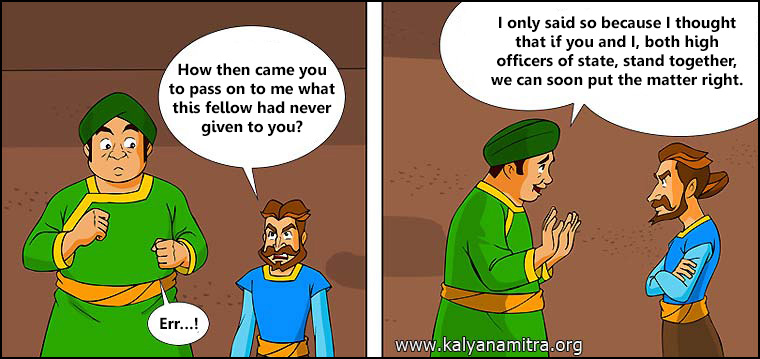
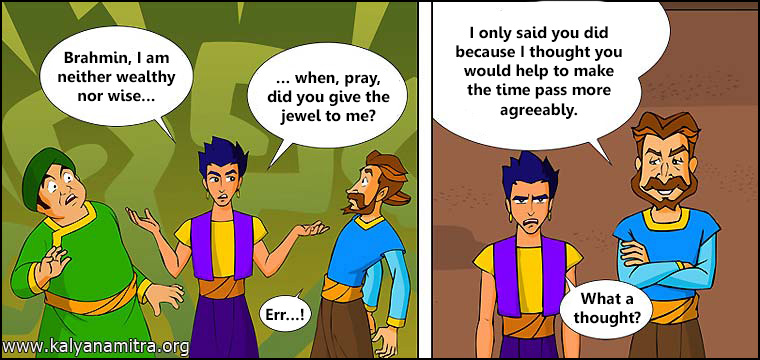
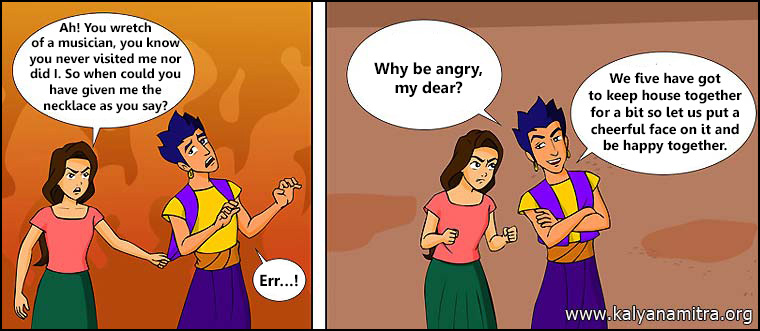
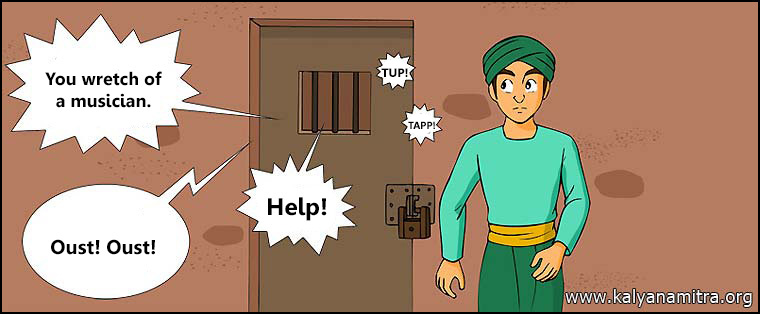
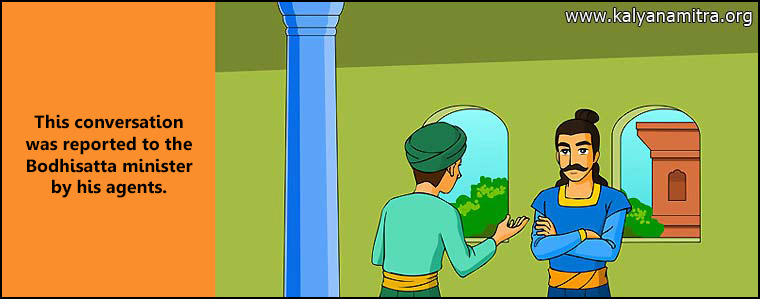
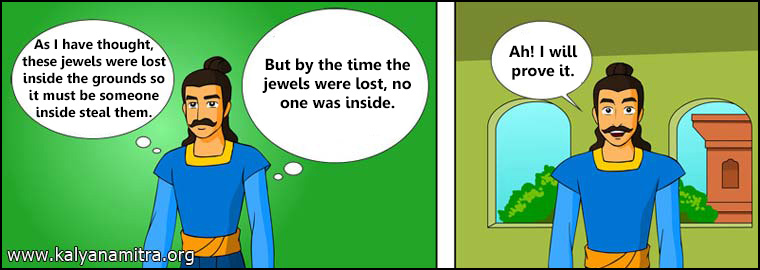
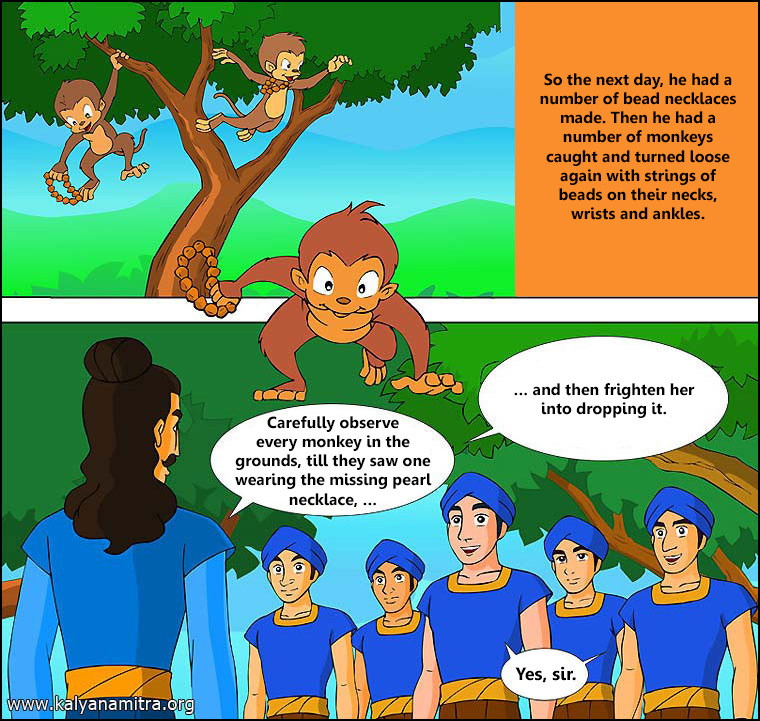
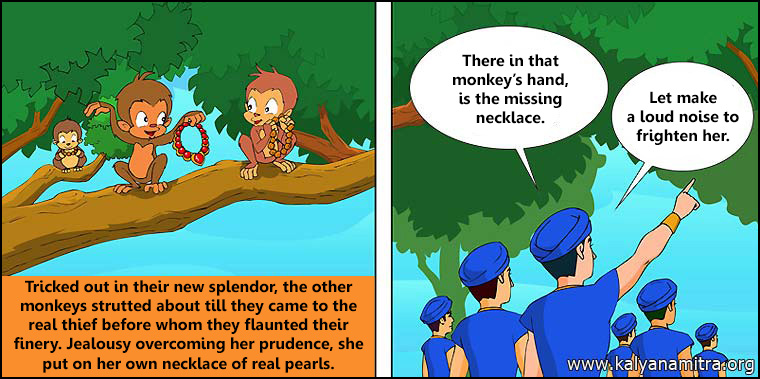

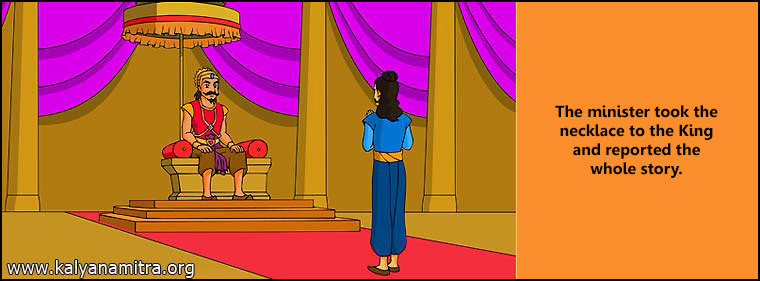
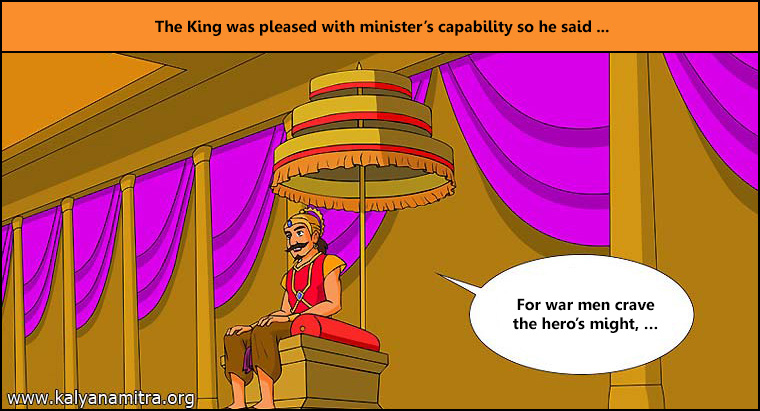
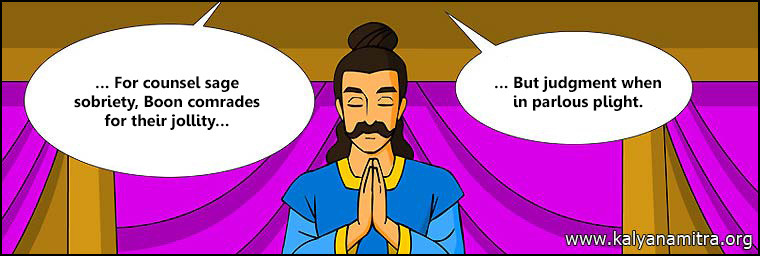
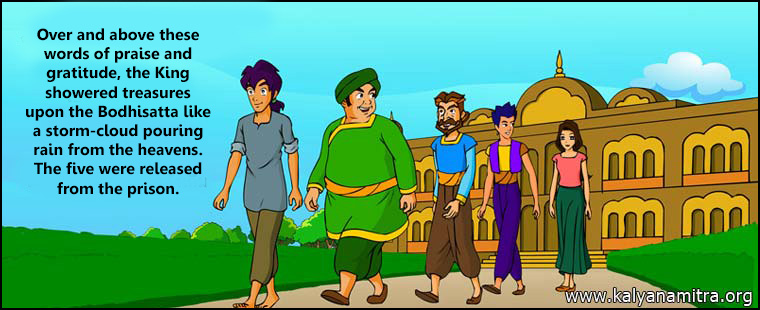
MAHASARA-JATAKA,
A queen's jewels are stolen by monkeys. Certain innocent persons confess to the theft. How the monkeys are proved to be the real culprits and how the jewels are recovered.
The Origin of the Story
This story was told by the Lord Buddha while was dwelling at Jetavana monastery about Venerable Ananda.
Once the wives of the King of Kosala thought among themselves as follows, ‘Very rare is the coming of a Buddha and very rare is birth in a human form with all one’s faculties in perfection. Yet, though we have happened on a human form in a Buddha’s lifetime, we cannot go at will to the monastery to hear the truth from his own lips, to do obeisance and to make offerings to him. We live here as in a box. Let us ask the King to send for a fitting monk to come here and teach us the truth. Let us learn what we can from him and be charitable and do good works, to the end that we may profit by our having been born at this happy juncture.’
So they all went in a body to the King and told him what was in their minds and the King gave his consent. Now it fell out on a day that the King was minded to take his pleasure in the royal pleasance and gave orders that the grounds should be made ready for his coming. As the gardener was working away, he espied the Lord Buddha seated at the foot of a tree. So he went to the King and said, ‘The pleasance is made ready, sire but the Blessed One is sitting there at the foot of a tree.’ ‘Very good,’ said the King, ‘we will go and hear the Master.’ Mounting his chariot of state, he we went to the Lord Buddha in the pleasance.
Now there was then seated at the Lord Buddha’s feet, listening to his teaching, a lay-brother named Chattapani who had entered the third path. On catching sight of this lay-brother, the King hesitated but, on reflection that this must be a virtuous man or he would not be sitting by the Buddha for instruction, he approached and with a bow seated himself on one side of the Blessed One. Out of reverence for the supreme Buddha, the lay-brother neither rose in the King’s honor nor saluted his majesty and this made the King very angry.
Noticing the King’s displeasure, the Buddha proceeded to extol the merits of that lay-brother, saying, ‘Sire, this lay-brother is master of all tradition; he knows by heart the scriptures that have been handed down and he has set himself free from the bondage of passion.’ ‘Surely,’ thought the King, ‘he whose praises the Buddha is telling can be no ordinary person.’ And he said to him, ‘Let me know, lay-brother, if you are in need of anything.’ ‘Thank you,’ said the man. Then the King listened to the Buddha’s teaching and at its close rose up and ceremoniously withdrew.
Another day, meeting that same lay-brother going after breakfast umbrella in hand to Jetavana, the King had him summoned to his presence and said, I hear, lay-brother, that you are a man of great learning. Now my wives are very anxious to hear and learn the truth; I should be glad if you would teach them.’ ‘It is not meet, sire that a layman should expound or teach the truth in the King’s harem that is the prerogative of the Sangha.’
Recognizing the force of this remark, the King, after dismissing the layman, called his wives together and announced to them his intention of sending to the Lord Buddha for one of the Sangha to come as their instructor in the doctrine. Which of the eighty chief disciples would they have? After talking it over together, the ladies with one accord chose Ananda the Elder, surnamed the treasurer of the faith. So the King went to the Buddha and with a courteous greeting sat down by his side after which he proceeded to state his wives’ wish and his own hope, that Ananda might be their teacher. The Lord Buddha, having consented to send Venerable Ananda, the King’s wives now began to be regularly taught by the Elder and to learn from him.
One day, the jewel out of the King’s turban was missing. When the King heard of the loss, he sent for his ministers and bade them seize everyone who had access to the precincts and find the jewel. So the ministers searched everybody, women and all, for the missing jewel, till they had worried everybody almost out of their lives but no trace of it could they find. That day Venerable Ananda came to the palace, only to find the King’s wives as dejected as they had hitherto been delighted when he taught them. ‘What has made you like this today?’ asked the Elder. ‘Oh, sir,’ said they, ‘the King has lost the jewel out of his turban and by his orders the ministers are worrying everybody, women and all, out of their lives, in order to find it. We can’t say what may not happen to anyone of us and that is why we are so sad.’ ‘Don’t think any more about it,’ said the Elder cheerily, as he went to find the King.
Taking the seat set for him, the Elder asked whether it was true that his majesty had lost his jewel.’ ‘Quite true, sir,’ said the King. ‘And can it not be found?’
‘I have had all the inmates of the palaces worried out of their lives and yet I can’t find it.’
‘There is one way, sire, to find it without worrying people out of their lives.’
‘What way is that, sir?’
‘By wisp-giving, sire.’
‘Wisp-giving? What may that be, pray?’
‘Call together, sire, all the persons you suspect and privately give each one of them separately a wisp of straw or a lump of clay will do, saying, ‘Take this and put it in such and such a place tomorrow at daybreak.’ The man that took the jewel will put it in the straw or clay and so bring it back. If it be brought back the very first day, well and good. If not, the same thing must be done on the second and third days. In this way, a large number of persons will escape worry and you will get your jewel back.’ With these words the Elder departed.
Following the above counsel, the King caused the straw and clay to be dealt out for three successive days but yet the jewel was not recovered. On the third day the Elder came again and asked whether the jewel had been brought back.
‘No, sir,’ said the King.
‘Then, sire, you must have a large water-pot set in a retired corner of your courtyard and you must have the pot filled with water and a screen put up before it. Then give orders that all who frequent the precincts, men and women alike, are to put off their outer garments and one by one wash their hands behind the screen and then come back.’ With this advice the Elder departed. And the King did as he bade.
Thought the thief, ‘Venerable Ananda has seriously taken the matter in hand and if he does not find the jewel, he’ll not let things rest here. The time has really come to give the jewel up without more ado.’ So he secreted the jewel about his person and going behind the screen, dropped it in the water before he went away. When everyone had gone, the pot was emptied and the jewel found.
‘It’s all owing to the Elder,’ exclaimed the King in his joy, ‘that I have got my jewel back and that without worrying a host of people out of their lives.’ And all the persons about the precincts were equally grateful to Venerable Ananda for the trouble he had saved them from.
The story how Venerable Ananda’s marvelous powers had found the jewel, spread through all the city till it reached the brotherhood. Said the monks, ‘The great knowledge, learning, and cleverness of the Elder Ananda have been the means at once of recovering the lost jewel and of saving many persons from being worried out of their lives.’
And as they sat together in the hall of truth, singing the praises of Venerable Ananda, the Lord Buddha entered and asked the subject of their conversation. Being told, he said, ‘Monks, this is not the first time that what had been stolen has been found nor is Ananda the only one who has brought about such a discovery. In bygone days too, the wise and good discovered what had been stolen away and also saved a host of people from trouble, showing that the lost property had fallen into the hands of animals.’ So saying, he told this story of the past.
The revealing of the identities
His lesson ended, the Lord Buddha, after extolling the Elder’s merits, identified the birth by saying, ‘Ananda was the King of those days and I his wise counsellor.’
What are learned from the story:
-
The End